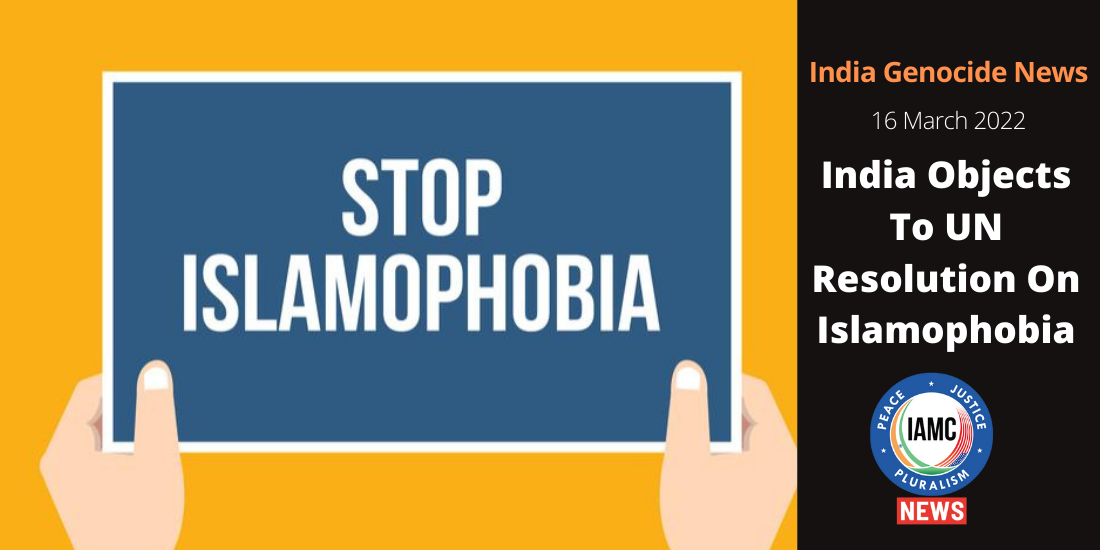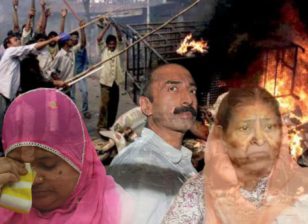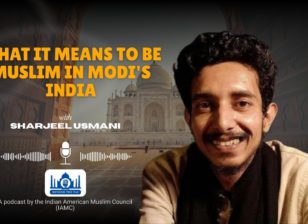India Objects To UN Resolution On International Islamophobia Day
In a thinly veiled attempt to dismiss Islamophobia as an international problem that poses serious danger to Muslims throughout the world, India’s Permanent Representative to the United Nations T. S. Tirumurti downplayed the UN’s resolution on an International Day to Combat Islamophobia.
“India is proud that pluralism is at the core of our existence and we firmly believe in equal protection and promotion of all religions and faiths,” Tirumurti said, ignoring the many times India has been slammed for the international community for its extreme anti-Muslim discrimination under Prime Minister Narendra Modi and the Bharatiya Janata Party. “We hope that the resolution adopted today (Tuesday) does not set a precedent which will lead to multiple resolutions on phobias based on selective religions and divide the United Nations into religious camps.”
Rather than respecting the purpose of the International Day to Combat Islamophobia, which is aimed at combatting the discrimination faced by Muslims as workers, travelers, refugees, and everyday citizens, Tirumurti further engaged in whataboutism, stating that Hinduphobia and Sikh-phobia are also on the rise. Again, he ignored the fact that supporters of Modi and the BJP have contributed to Sikh-phobic rhetoric following the farmers’ protests last year.
“We are concerned about elevating the phobia against one religion to the level of an international day, to the exclusion of all the others,” Tirumurti said. “Celebration of a religion is one thing but to commemorate the combatting of hatred against one religion is quite another. In fact, this resolution may well end up downplaying the seriousness of phobias against all other religions.”
His bigoted remarks display India’s deep-rooted anti-Muslim hatred, to the point where a day to combat Islamophobia is viewed as problematic and a threat to Hindus.
Muslims Express Outrage Over Hijab Ban On Social Media, Through Protest
Muslims across India have slammed the Karnataka High Court’s verdict that religious garments should be banned in schools where a uniform is in place, specifically targeting the hijab and Muslim women who wear it. In protest, both boys and girls across the state have staged protests outside of their schools, demanding their constitutional right to religious expression and education.
“We want education with hijab and not without it. We won’t go to college without hijab,” said a group of Muslim protesters in one viral video.
Despite their protests, colleges continued to demand that the girls remove their hijabs or be forced to leave, while a Muslim boy who attended his school wearing a skullcap was slapped by a teacher. A number of shops also closed down in Bhatkal city in support of the Muslim girls.
A number of Muslim groups also condemned the verdict. Maulana Khalid Saifullah Rahmani, general secretary of the All India Muslim Personal Law Board (AIMPLB) said, “It is the constitutional right of every individual to wear what he deems fit,” and declared that the ban was discriminatory against Muslims.
“When the court draws a false parallel of hijab with saffron shawl, it essentially validates the strategy of Hindutva groups who had started distributing saffron shawls as a political gimmick to intimidate Muslim women students and counter their demand for wearing hijab,” the Students Islamic Organization (SIO) of India said in a statement.
Water Tanks In Uttar Pradesh Painted Saffron With Images Of Hindu Armies
In Moradabad city in Uttar Pradesh state, seven water tanks were painted with the image of soldiers on horses carrying saffron flags, depicting what many saw as Hindu armies. In Uttar Pradesh, where Hindu extremist groups have grown increasingly bold and Chief Minister Yogi Adityanath has openly called for Hindu forces to destroy mosques, the mural has sparked tensions.
“It is a deliberate attempt to intimidate a particular community. We will raise the matter with the municipal commissioner and the district magistrate,” said Samajwadi Party councilor Shiri Gul.
However, Moradabad mayor Vinod Agarwal said, “The tanks were dirty and needed a fresh coat of paint. There is nothing wrong with saffron color.”
The murals can be seen as yet another microaggression against the Muslim community in a nation that seeks to undermine and potentially unleash violence against a minority of 200 million people on a daily basis.




